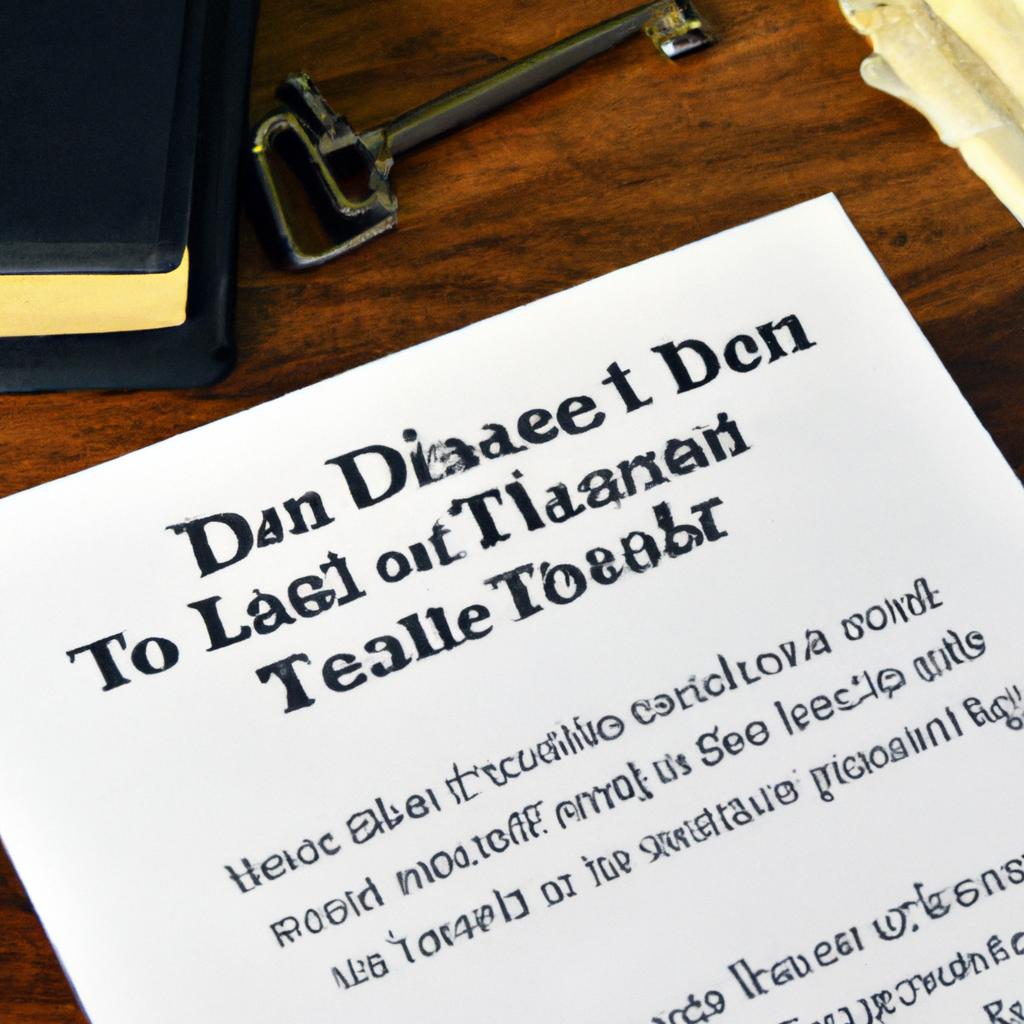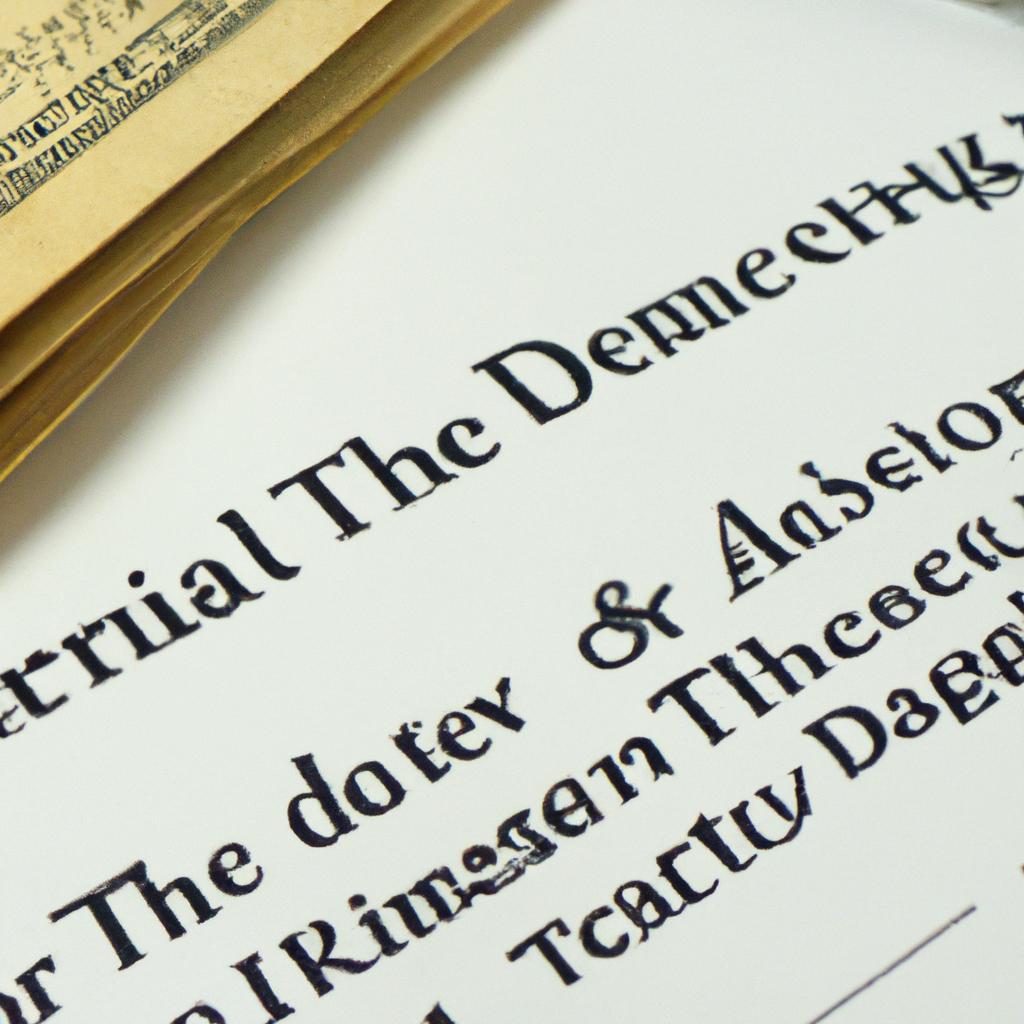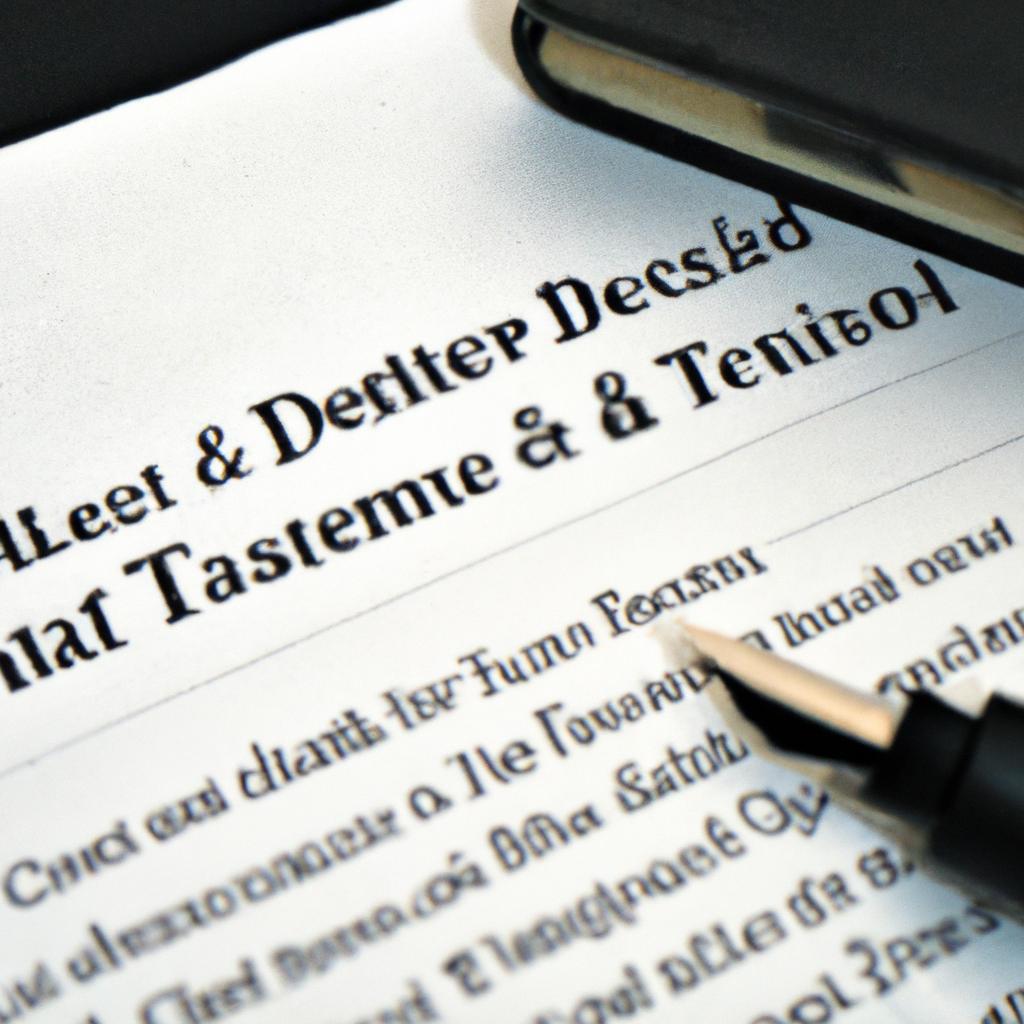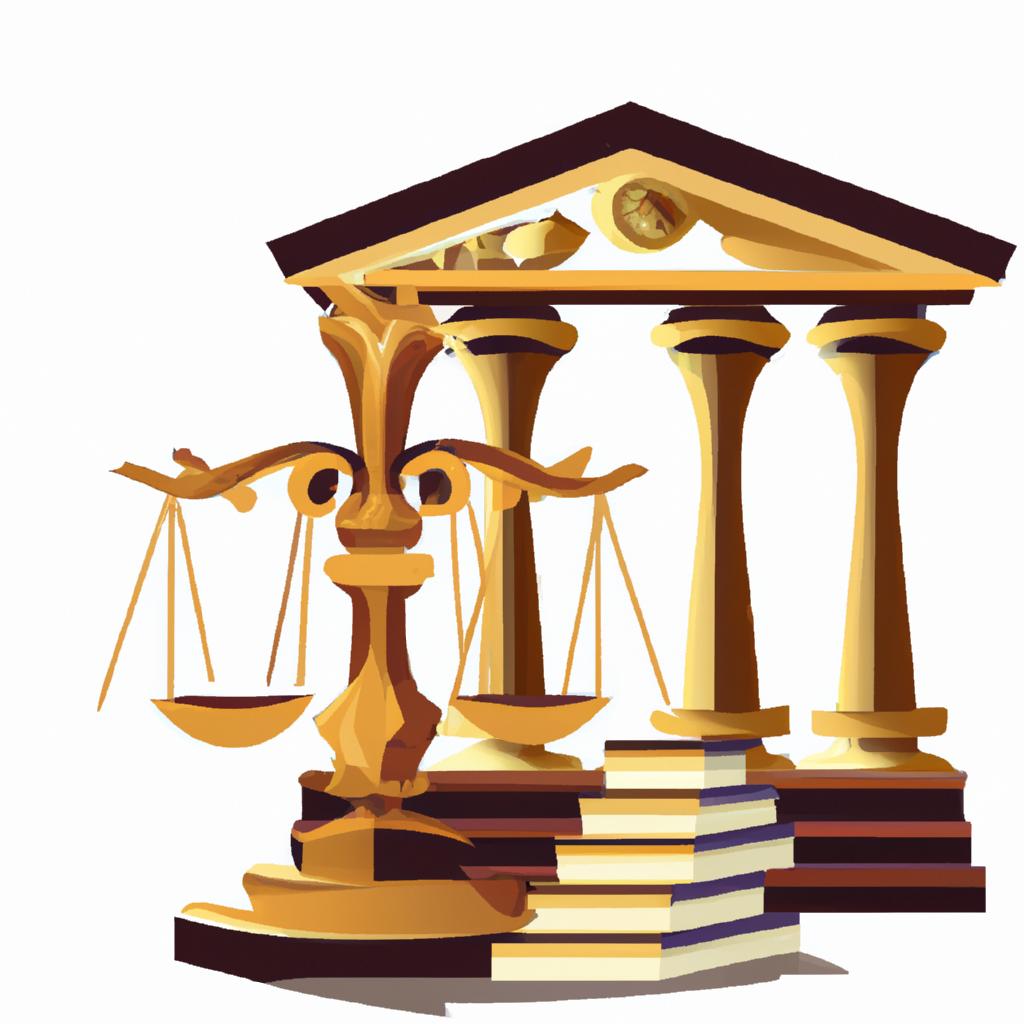Within the realm of estate planning, the concept of a “deed of death transfer” often arises as a crucial tool for ensuring the seamless transfer of real estate assets upon an individual’s passing. As experienced attorneys at Morgan Legal Group in New York City, we understand the complexities and intricacies involved in navigating this legal instrument. In this article, we will delve into the nuances of deed of death transfers, exploring its benefits, limitations, and key considerations for individuals seeking to effectively manage their real estate portfolio as part of their overall estate plan.
Understanding the Legal Implications of a Deed of Death Transfer
When dealing with the legal implications of a Deed of Death Transfer, it is crucial to understand the intricate details and potential consequences that come with such a document. This type of transfer allows for the seamless transition of real property upon the death of the property owner.
One key aspect to consider is the importance of ensuring the Deed of Death Transfer is properly executed according to the laws and regulations of the state. Any mistakes or oversights in the drafting or signing of the document could lead to complications and disputes down the line. It is highly recommended to seek the guidance of a skilled attorney to assist in the process and provide invaluable legal advice.

Navigating the Complexities of Transferring Property Through a Deed of Death
When it comes to the intricate process of transferring property through a Deed of Death, there are a multitude of complexities that must be carefully navigated. This legal tool allows property to be transferred to a designated beneficiary upon the death of the property owner, bypassing the probate process. Understanding the ins and outs of this type of transfer is essential to ensuring a smooth and successful transition of ownership.
One of the key considerations when utilizing a Deed of Death is selecting the appropriate beneficiary to receive the property. This decision should be made thoughtfully and with a clear understanding of the implications of the transfer. Additionally, it is crucial to adhere to all legal requirements and procedures in order to avoid any complications or disputes down the line. By working with experienced professionals, such as the team at Morgan Legal Group, you can rest assured that your property transfer will be handled with the utmost care and attention to detail.

Examining the Benefits and Limitations of Utilizing a Deed of Death Transfer in Estate Planning
When considering estate planning options, it is important to weigh the benefits and limitations of utilizing a Deed of Death Transfer. This method allows for the transfer of real estate property upon the death of the grantor, avoiding the need for probate. One of the main benefits of a Deed of Death Transfer is its ability to streamline the transfer process, saving time and potentially reducing legal costs.
However, it is crucial to acknowledge the limitations of this estate planning tool. A Deed of Death Transfer may not be suitable for individuals with complex estates or those with specific wishes regarding how their assets are distributed. Additionally, there may be restrictions on the type of property that can be transferred using this method. Consulting with a knowledgeable estate planning attorney, such as those at Morgan Legal Group in New York City, can help individuals navigate the benefits and limitations of a Deed of Death Transfer to determine if it is the right choice for their estate planning needs.

Key Considerations for Ensuring a Smooth and Effective Implementation of a Deed of Death Transfer
One key consideration when implementing a deed of death transfer is to ensure that all legal requirements are met. This includes making sure that the deed is properly executed and notarized in accordance with state laws. Failure to adhere to these requirements can result in the deed being deemed invalid, which can lead to complications during the transfer process. It is essential to consult with a knowledgeable attorney to ensure that all legal formalities are followed accurately.
Another important factor to consider is the selection of the beneficiary. It is crucial to clearly identify the individual or individuals who will receive the property upon the grantor’s death. Careful consideration should be given to factors such as age, relationship to the grantor, and potential future needs. Additionally, it is advisable to review and update beneficiary designations periodically to reflect any changes in circumstances. By paying attention to these key considerations, you can help ensure a smooth and effective implementation of a deed of death transfer.
| Name | Relationship | Age |
|---|---|---|
| Alice Smith | Daughter | 32 |
| John Doe | Brother | 45 |
Q&A
Q: What is a deed of death transfer?
A: A deed of death transfer is a legal document that allows a property owner to transfer ownership of a property to a beneficiary upon their death.
Q: How does a deed of death transfer work?
A: The property owner signs the deed of death transfer, designating a beneficiary to inherit the property upon their death. When the property owner passes away, the beneficiary automatically becomes the new owner of the property without the need for probate.
Q: Why would someone use a deed of death transfer?
A: A deed of death transfer can help streamline the transfer of property to a beneficiary, avoiding probate and potentially reducing costs and delays in the transfer of ownership.
Q: Are there any downsides to using a deed of death transfer?
A: While a deed of death transfer can be a convenient way to transfer property, it’s important to consider all implications, such as potential tax consequences and the ability to change beneficiaries.
Q: How does someone create a deed of death transfer?
A: To create a deed of death transfer, the property owner must fill out the necessary legal forms and have them properly executed and notarized. It’s recommended to consult with a legal professional to ensure the document is valid and complies with state laws.
Concluding Remarks
In conclusion, the deed of death transfer is a unique and often overlooked aspect of estate planning. By understanding how this process works, individuals can ensure that their assets are passed on according to their wishes and avoid potential probate issues for their loved ones. While discussing topics related to death can be uncomfortable, it is important to address these matters in order to protect the financial well-being of future generations. With proper planning and guidance, the deed of death transfer can be a powerful tool in securing a lasting legacy for your heirs. May your future be filled with peace of mind and financial security.
 What is a Deed of Death Transfer and How Does it Work?
What is a Deed of Death Transfer and How Does it Work?
A deed of death transfer is an important legal document that allows a property owner to transfer their property to a designated beneficiary upon their death. This can be a simple and efficient estate planning tool, as it allows for the smooth transfer of assets to loved ones without the need for probate or court interference.
In this article, we will explore the concept of a deed of death transfer, how it works, and its benefits. We will also provide practical tips and real-life case studies to help you understand this important legal document better.
What is a Deed of Death Transfer?
A deed of death transfer, also known as a transfer on death deed or beneficiary deed, is a legal document that allows an individual to designate a beneficiary to receive their real property upon the owner’s death. This beneficiary can be a family member, a friend, or even a charity.
The deed is recorded with the county or state where the property is located and is effective only upon the owner’s death. Until then, the owner retains full ownership and control of the property, including the right to sell or transfer it to someone else.
How Does it Work?
A deed of death transfer is a simple and straightforward legal document that can be prepared with the help of a lawyer, but it does not require probate or court intervention to become effective. Here’s how it works:
1. Identify the property and beneficiary: The first step is to determine the specific property that will be transferred through the deed and designate a beneficiary to receive it.
2. Prepare the deed: With the assistance of a lawyer, the owner will prepare the deed, which will include the legal descriptions of the property, the name of the beneficiary, and any conditions or restrictions.
3. Sign the deed: The deed must be signed and notarized by the owner. Some states may also require two witnesses.
4. Record the deed: The deed must be recorded with the county or state where the property is located before it can become effective.
5. Keep the deed up-to-date: It is essential to keep the deed up-to-date in case of any changes in circumstances, such as the death of the beneficiary. This can be done by preparing a new deed or revoking the existing one.
What Are the Benefits of a Deed of Death Transfer?
1. Avoids probate: One of the most significant benefits of a deed of death transfer is that it avoids the lengthy and costly probate process. The property is transferred directly to the designated beneficiary without the need for court interference.
2. Saves time and money: By avoiding probate, the beneficiary can receive the property quickly and at a lower cost, as there are no court fees or attorney fees involved.
3. Retains control: Until the owner’s death, they retain full control and ownership of the property, including the right to sell or transfer it to someone else.
4. Provides flexibility: A deed of death transfer can be revoked or modified at any time, giving the owner the flexibility to make changes as needed.
Practical Tips for Using a Deed of Death Transfer:
– Work with a knowledgeable lawyer to ensure that the deed is prepared accurately and meets all legal requirements.
– Keep the deed in a safe and easily accessible place and inform the designated beneficiary about its existence.
– Keep the deed up-to-date and make any necessary changes if there are updates to the beneficiary or ownership of the property.
Real-life Case Study: John’s Story
John had a significant amount of assets, including a vacation home, that he wanted to pass on to his son, James, upon his death. However, he was concerned about the costly and time-consuming probate process and wanted to avoid it.
After consulting with his lawyer, John decided to use a deed of death transfer to transfer the vacation home to James. He named James as the sole beneficiary and included conditions that the property could not be sold until he reached the age of 30.
When John passed away, the deed of death transfer was recorded, and James received the property without having to go through the probate process. This saved James both time and money, and he was able to keep the property in the family as intended.
In Summary
A deed of death transfer is a valuable estate planning tool that can help you transfer your property to your loved ones efficiently and without the need for probate. It offers flexibility, saves time and money, and provides peace of mind knowing that your assets will be passed on to the designated beneficiary according to your wishes.
For more guidance on creating a deed of death transfer, consult with a knowledgeable lawyer who can help you navigate the legal requirements and ensure that your wishes are properly documented and executed.

